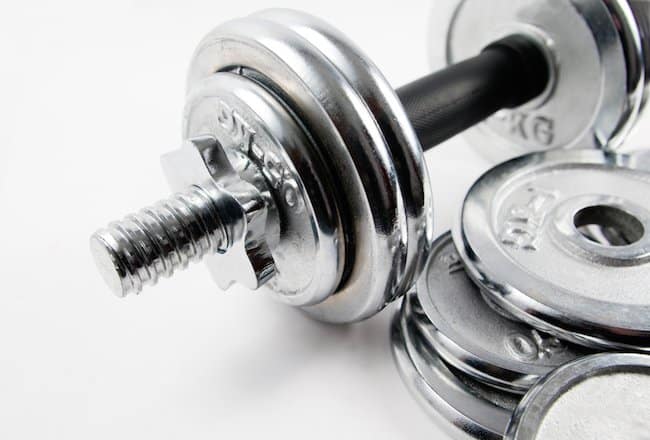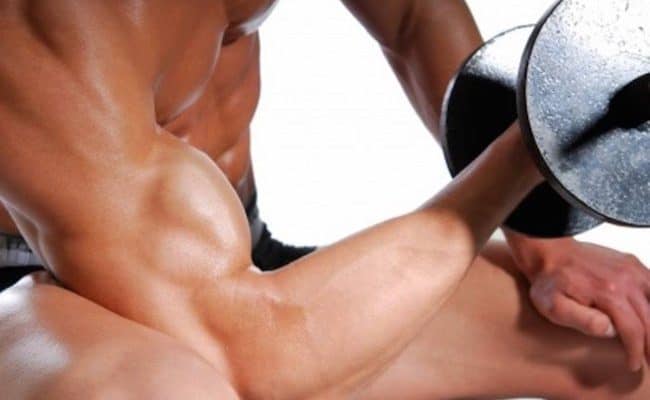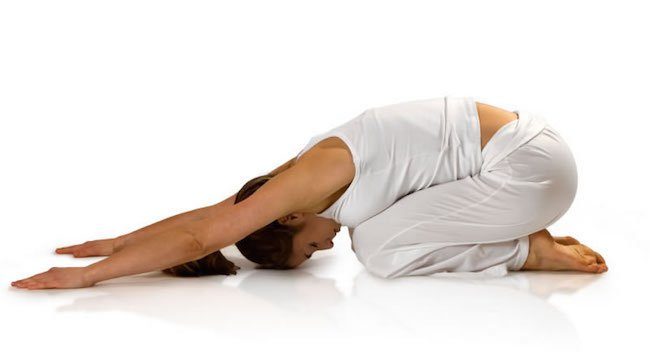
Some people may remember Paula Radcliffe (British marathon runner) struggling through the marathon run in the 2004 Olympics in Greece. After a few months of media speculation, Paula sacked her nutritionist and announced that her troubles were due to wrong nutrition. Sports nutrition came in the spot light once again and highlighted the importance of eating the right foods for exercise. Understandably Paula Radcliffe is an elite athlete and competes at high level in a very demanding sport, so what she eats can be very important. But what about for the rest of us mortals who just simply follow a short workout a few times a week, should we start thinking what we should eat after the gym?
What to eat after your workout for best results?
Depends on what you want to achieve
In the old days there was this rule which said carbohydrates before exercise in order to fuel the exercise and protein after to build the muscles. What you eat does in part depend on what you want to achieve and what exercise you will be carrying out. If you are going to run a marathon then you would want to have ample of carbohydrates in your body as you will need it. However, it is so much sugar your body will store and you would find yourself drinking energy drink after energy drink during the run. There are techniques to maximise glycogen stores with diet and exercise manipulation but is something that takes time so don’t expect to happen just the night before.
As a general rule of thumb combine carbohydrates and protein
The average person’s diet is high in carbohydrates anyway so overloading just before you go to the gym is not quite recommended. Now to the point which is what to eat post workout. In general a combination of carbohydrates and protein is more or less right. As with everything else there are recommendations as to how much of each, but a lot of the studies from which these recommendations come are based on athletes. The average person is unlikely to exercise to the same extend or have the same requirements. So keep it simple.
For muscle building:
- Ingesting whey protein (usually in drinks) acutely post workout has been shown to result in greater muscle hypertrophy. The mechanisms of this effect could be attributed to the increased amount of leucine (amino acid) in whey protein or the fast digestion or both.
- Do be careful of some commercial readymade protein shakes as they could be very high in sugar.
- Even if you resistance training you will still need to include carbohydrates in the post workout meal. Resistance training can deplete (or for the more novice lower) glycogen stores from the muscle.
- Apart from the glycogen re-storage in the muscle, carbohydrates have been shown to reduce muscle protein breakdown.
- Aim for quality of protein rather than quantity. See the table below for an example of foods.
- Not much is known about protein benefits outside training. However, it is suggested that it may be beneficial to include small amounts of protein at least 24-48 hrs. post exercise in which time protein synthesis and breakdown are elevated.
- Don’t forget to include some fat. Everything is needed. Keep it low, but adding for example some olive oil in your salad or some avocado is fat. Just don’t go extremely fat free diet and there will be fat in your diet with no effort. (See also: What are healthy fats)
Leucine and branched amino acids contents in foods. Grams of amino acids/100g of protein.
| Food |
Leucine (%) |
Branched chain amino acids |
| Whey protein |
14 |
26 |
| Milk protein |
10 |
21 |
| Egg |
9 |
22 |
| Muscle protein |
8 |
18 |
| Soy protein |
8 |
18 |
| Wheat Protein |
7 |
15 |
Information taken from Laham-New et.al. (2011)
For weight loss:
The principles are more or less the same here as well; Aim for a combination of protein and carbohydrate.
- Going lower on carbohydrates and fat and slightly higher on protein may be beneficial for weight loss gains.
- Avoid the common mistake of eating that cake, treat, takeaway etc. post workout just because your body burns more energy. If you want to lose weight is not about ‘getting away’ with it. The time post workout is the time to maximise the benefits.
- Same goes as to don’t eat like there is no tomorrow. I guess you can eat a big salad with your meal taken is not drowned in sauces but hey going to the gym is not a passport to overeating.
- Don’t delay the meal. Same principles apply for your body and muscles as well. If you eat ‘as soon as’ after exercise it would help balance your hormones and restore nutrients.
Long endurance workouts and athletes
To be honest athletes time their meals, workouts according to periods and events. So it is not as simple as a 2 line recommendation. There are general rules no question about it but an athlete would probably have a whole nutrition plan from day one to retirement and it will depend on a number of things. For the more average Joe:
- If you are more of a long endurance workout person then you will need to move the scale towards the carbs and less protein. Some recommendations tend to be on around the 4:1 ratio. What this means is that for every 4g of carbs then you have 1g of protein. This is a guide rather than a setting stone so don’t worry about counting grams. Look at your plate and think if 2/3 of my plate is carbs then the rest will be protein.
- Do be careful on how much sugar you have consumed during your workout. If you just been to the gym for an hour and during which you have consumed a bottle of an energy drink, even if it all has been aerobic exercising, it is unlikely that you are short of sugar.
- If you have been marathon running then you are likely to be short of sugar. Stick to eating a combination of complex and simple carbohydrates and protein. Fat as well but things like oil or animal fat on a steak for example are fat so you don’t have to go too far to get fat in your diet.
Do not forget about fluids
How much water?
Adequate fluid intake is often forgotten or overlooked and yes it is an important part of nutrition. There are a number of recommendations going around on how much fluids (water to be more specific) is the right amount to consume. Some people advocate the 2L of water a day some use formulas to work out the amount of fluids depending on the exercise and body weight and so on. I would simply say that for the average person there is no need to make things complicated and just keep well hydrated.
Don’t wait to get thirsty
The general rule is that if you feel thirsty then you are likely to already be dehydrated so don’t wait until you are dying for a drink (not talking about the alcohol kind of ‘dying for a drink’ though). Have regular drinks through the day (hydration before exercise is as important as after) and when you exercise make sure you have a bottle of water with you or access to water/fluids and you can sip between sets or as you go along.
PLAN AHEAD and if not make sure you drink plenty of water post workout. Drink slowly though don’t make yourself sick by drinking 2L in one go. This will not be very good for rehydration or your blood either.
Energy drinks and electrolytes. Do you really need them?
The market is full of sports drinks, energy drinks, water with electrolytes and they all advocate that you really need them for your workout. Athletes tend to train for long periods in the day or have 2 long workouts and do exercise to exhaustion. They will need to replenish carbohydrates and electrolytes and other elements. For all the rest, the daily average Joe workouts all these drinks are just a way of taking your money unnecessarily and needlessly. Adequate nutrition in general, before and after your workout is as good if not better. Also most commercial energy drinks tend to have caffeine and other elements which you wouldn’t really want to be consuming too regularly.
Athletes, long endurance workouts and working out in the heat:
- If you do run a marathon, or 10k race or something similar then you will need to replenish carbohydrates and electrolytes. Being hydrated at the start is as important as rehydrating at the end.
- Start preparing 24hrs before such event by drinking plenty of fluids, or at least 4hrs before a workout. The ACSM (American College of Sports Nutrition) recommends drinking slowly 5-7 ml/kg of fluid at least 4hrs prior to exercise. Inadequate hydration can negatively influence performance and health obviously.
- Post event/ exercise aim for a 150% rehydration target in the 1st 24 hrs post race and avoid commercial energy drinks as caffeine promotes dieresis (in simple words you will be going to the toilet all the time and losing fluids).
- Do aim to replenish electrolytes as ingesting large amounts of plain water may have the opposite effect. During long duration endurance workouts and/or working out in the heat you will be losing fluids and electrolytes (i.e. sodium) as sweat. By consuming things like sodium will not only help in replenishing what the body has lost but also can help in glucose absorption and in many ways water absorption.
Timing of the meal – Different schools of thought
Some say eat one hour after your workout
Some studies advocate that the timing of the meal after a workout is as important as what you eat. This is shown to be relevant for both resistance and aerobic exercise. The notion is that within the first 45-60min post exercise muscles will absorb most nutrients and most efficiently. Some call this the golden hour, and it is considered that the muscles will replenish in a more efficient way any glycogen (stored sugar) lost.
Others say delay your post workout meals for increase fat loss
There have been a couple of different schools of thought on this. Some people may advocate that during post workout there may be a time in which your body burns higher amount of fat and therefore delaying a meal could increase fat loss. However, that can be achieved in terms of what you eat rather than when.
Drink protein before your workout?
There is also a school of thought that advocates that having protein before a workout such as a protein drink then will be better for muscle building as there are available amino acids (protein building blocks) circulating in the body. This can be argued is more or less as eating immediately post exercise and making the nutrients available for when the muscle is more efficiently using it.
References used in this article










